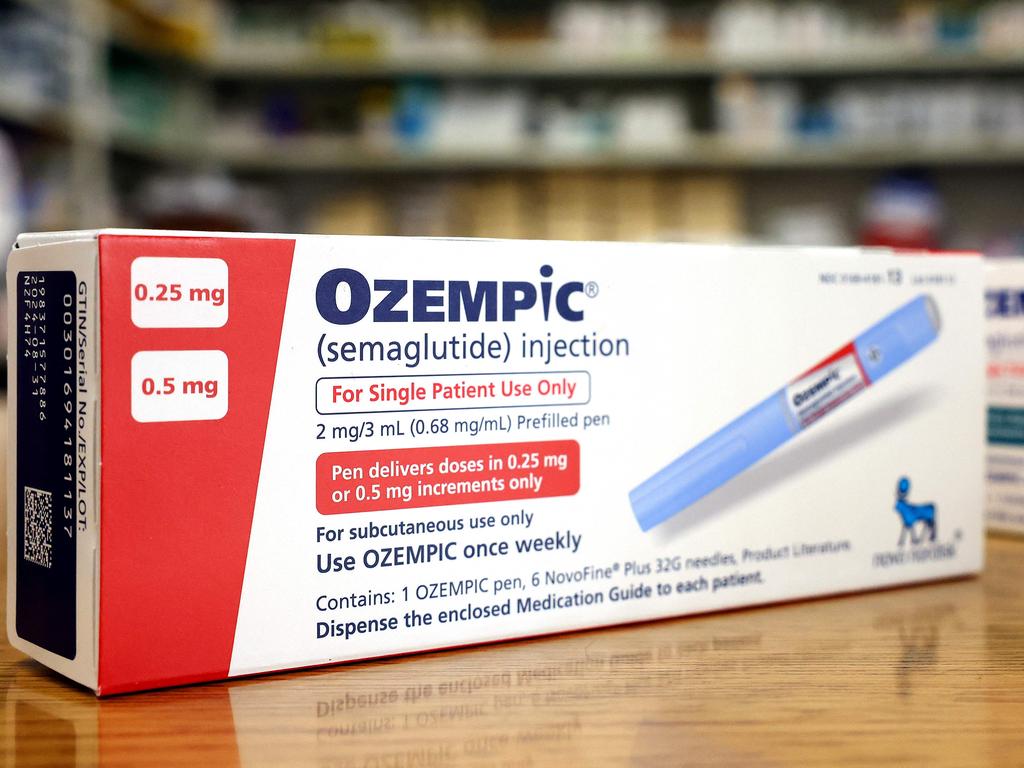Top-level push for taxpayer funding of weight-loss drugs gathers pace
Pharma giants are sweating on the results of a federal government request for guidance on adding weight-loss drugs to the Pharmaceutical Benefits Scheme in a bid to tackle the obesity epidemic.

The federal government is pushing for the consideration of public funding for weight-loss drugs, as the nation’s pharmaceutical expert body prepares advice on which groups of patients would benefit the most from subsidised treatment.
Drug companies are closely watching to see what stance the Pharmaceutical Benefits Advisory Committee will take in its advice to Health Minister Mark Butler, who asked the body to provide guidance on subsidised access to weight-loss drugs. The PBAC’s advice to the minister is set to heavily determine future applications by pharma giants for public funding of GLP-1 agonists and similar drugs on the Pharmaceutical Benefits Scheme.
Mr Butler wrote to the chair of the PBAC in March to request that the committee provide advice to the government on equitable access to medicines for the treatment of obesity in Australia, including which Australian population cohorts may be most likely to benefit from subsidised pharmacotherapies.
The Therapeutic Goods Administration confirmed that “the PBAC’s advice may assist pharmaceutical companies in making future submissions for PBS listings and will be positioned alongside the (health department’s) broader work on obesity policy”.
There are currently no weight-loss drugs subsidised on the PBS in Australia, and the manufacturer of Wegovy, Novo Nordisk, had been knocked back twice.
Since that time, the UK moved to issue guidance on subsidised access to weight-loss drugs.

A group of leading obesity doctors have now issued a “call to action”, asking the federal government in a new report to prioritise, as a first step, adults with clinical obesity with substantial comorbidities for publicly funded access to weight-loss drugs.
The group is calling for subsidised access to weight-loss drugs for those with a body mass index of 40 or above with at least three serious obesity-related health impairments, or one severe obesity-related health impairment. They have specified a BMI of above 35 for Aboriginal and Torres Strait Islander patients.
This follows the model proposed by the National Institute for Health and Care Excellence in the UK, which recently released interim commissioning guidance supporting targeted funded access to Mounjaro for the treatment of obesity. NICE’s technology appraisal for the implementation of subsidised access to weight-loss drugs recommends prioritising treatment for adults with a BMI of over 35 and at least one obesity-related health impairment, or a BMI of over 40 where pharmacotherapy is considered clinically appropriate.
Obesity currently costs Australia at least $12bn a year in direct healthcare costs – a figure projected to rise to $87.7bn by 2032 without effective intervention. Currently, four in 10 children and three in four adults are affected by obesity, and the disease is disproportionately prevalent in the lowest socio-economic groups.
The chair of the RACGP’s Specific Interest in Obesity Management group, Dr Terri-Lynne South, said the cohort that the obesity doctors were recommending for targeted funding in Australia represented those with the greatest clinical need and the highest potential for health gain and economic benefit.
The obesity doctors’ report, led by GP Mark Mellor, said: “prioritising their access to effective obesity treatment will maximise health gains, reduce long-term healthcare costs, and deliver on national commitments to health equity”. The report is endorsed by the Australian and New Zealand Obesity Society and the National Association of Clinical Obesity Services.

“We urge the Australian government to adopt a structured model for obesity care. All Australians with obesity who seek treatment should have access to the full range of evidence-based options,” the report says.
The manufacturer of weight-loss drug Mounjaro, Eli Lilly, welcomed the proactive action from Mr Butler to ask the PBAC for advice on subsidisation, and said it would make an application to the pharmaceutical advisory body as soon as possible after the advice was received and after the outcome of its application for Mounjaro to treat type 2 diabetes.
“We know that obesity has a socio-economic gradient, so often the people who are most impacted by obesity are those with less means to afford paying out of pocket,” said Gabrielle Reppen, Eli Lilly’s vice-president of value access and public affairs.
“I’m hoping with this process of getting that pre-alignment on where we should be starting with reimbursement, that will mean when it comes to PBAC considering the dossier, we will be in a much better place to get a recommendation faster. I’m fairly optimistic that we will see some subsidisation for some patients with obesity in the next few years.”
Mr Butler moved to ask the PBAC to advise on targeted subsidised funding for weight-loss drugs after a major report on type 2 diabetes chaired by Labor MP Mike Freelander last year called for more equitable access to healthcare for disadvantaged populations, including expanded eligibility to GLP-1 drugs for disadvantaged communities.
Obesity-related health impairments include cardiovascular diseases, non-diabetic hyperglycaemia, type 2 diabetes, chronic kidney disease, metabolic dysfunction-associated fatty liver disease, obstructive sleep apnoea, obesity hypoventilation syndrome, hypertension, dyslipidaemia, male hypogonadism, polycystic ovary syndrome, and hip or knee osteoarthritis.





To join the conversation, please log in. Don't have an account? Register
Join the conversation, you are commenting as Logout